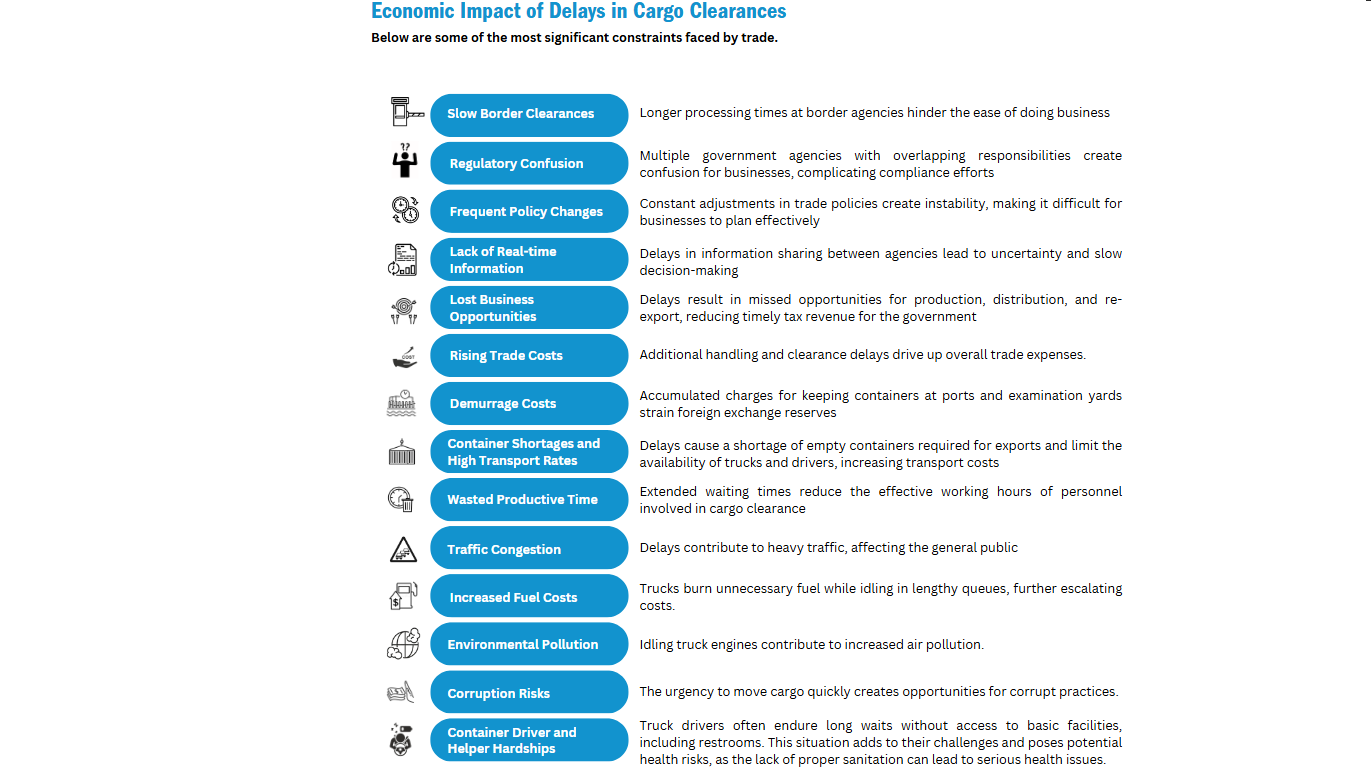
Customs delays in Sri Lanka are harming competitiveness and encouraging corruption, researchers say
4 months ago
Customs delays in Sri Lanka are harming competitiveness and encouraging corruption, researchers say

Sri Lanka’s Cargo Clearance Delays: Economic Impacts and Recommendations for Reform
A recent report by the Ceylon Chamber of Commerce highlights how delays in cargo clearance at Sri Lanka Customs are pushing up business and consumer costs, harming global competitiveness, and fostering corruption. These inefficiencies inflate consumer prices and diminish export competitiveness by driving up costs for goods requiring imported inputs. The analysis by economist Saumya Amarasiriwardane and trade expert Dinesh de Silva warns that the delays, primarily due to bureaucratic inefficiencies and outdated processes, severely impact Sri Lanka’s economy.
-Challenges in Cargo Clearance-
Cargo clearance delays have created bottlenecks at customs yards, with inadequate infrastructure and outdated procedures exacerbating the problem. Space constraints, a lack of modern scanning equipment, and reliance on manual inspections compound the delays. The consequences of these inefficiencies are far-reaching, affecting businesses, supply chains, and even daily commuters, as traffic builds up around customs facilities.
-Economic Consequences-
The delays raise operational costs for businesses, forcing companies to incur demurrage and storage fees that are often passed on to consumers, contributing to inflation. Importers, exporters, and local manufacturers relying on timely deliveries face production disruptions, which can damage Sri Lanka's reputation as a reliable trading partner. Inefficient clearance procedures also deter foreign direct investment (FDI), as investors perceive the regulatory environment as burdensome.
-Key Recommendations-
1. Establish a One-Stop Customs Examination Yard: A centralized facility could streamline the clearance process and reduce traffic congestion by moving operations out of heavily trafficked areas.
2. Digitize with a National Single Window (NSW): Implementing an integrated digital platform would allow simultaneous access to trade documentation by relevant agencies, speeding up clearance processes and reducing delays.
3. Advanced Risk Management: Introducing AI-based risk management systems would enable more efficient inspections by prioritizing high-risk shipments, reducing unnecessary delays, and enhancing trade security.
4. Public-Private Partnerships (PPPs): Partnering with private entities could bring innovative infrastructure solutions and improve service quality.
5. Transparent and Accountable Operations: Real-time data sharing and accountability mechanisms would improve transparency and allow businesses to track goods’ status effectively.
-Conclusion-
Addressing these inefficiencies is essential for Sri Lanka to retain its strategic position in global trade. Through reforms like the NSW, modernized inspection processes, and PPPs, Sri Lanka can improve its logistics performance, attract investment, and lay the groundwork for sustainable economic growth.
Source: EconomyNext